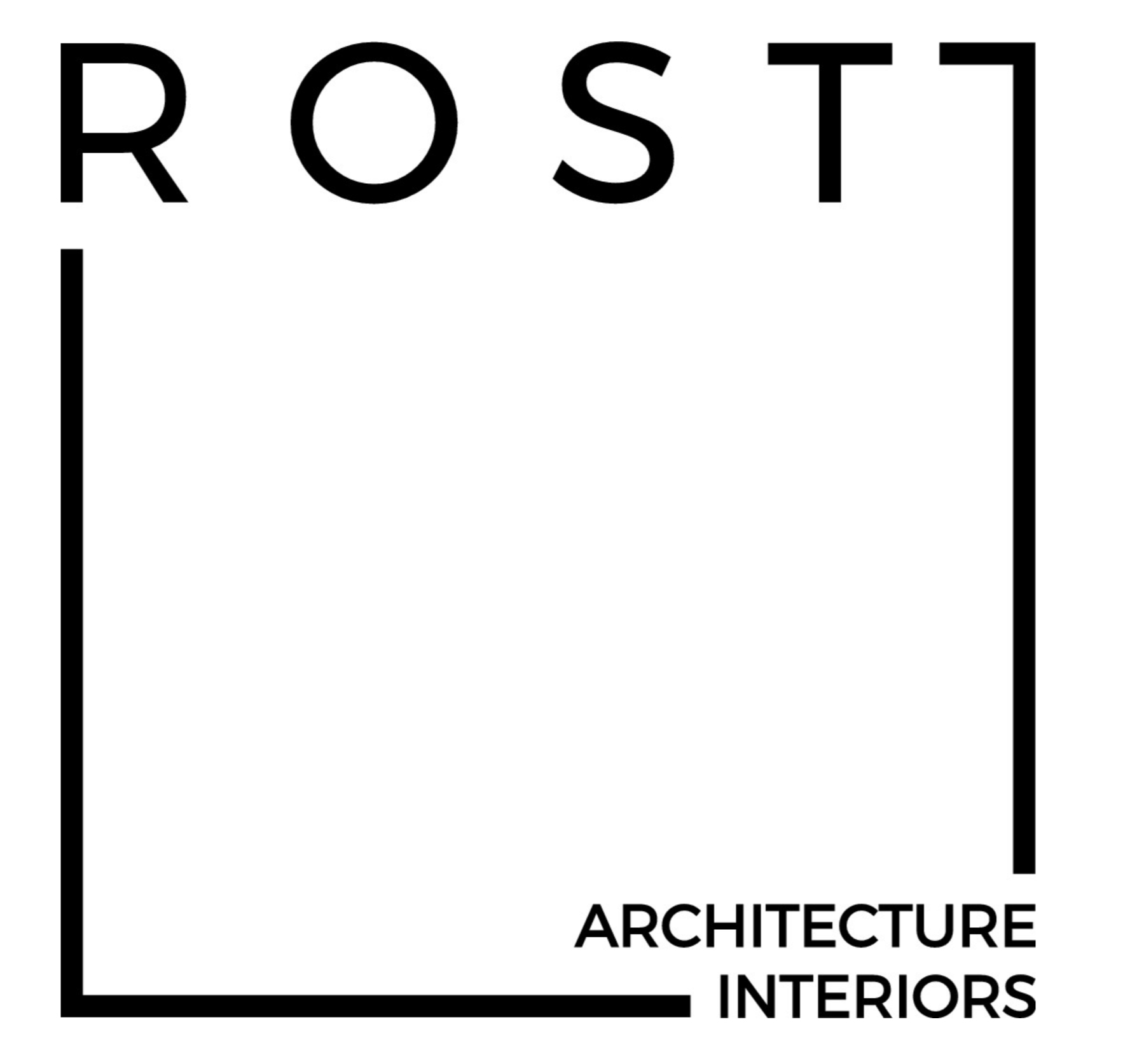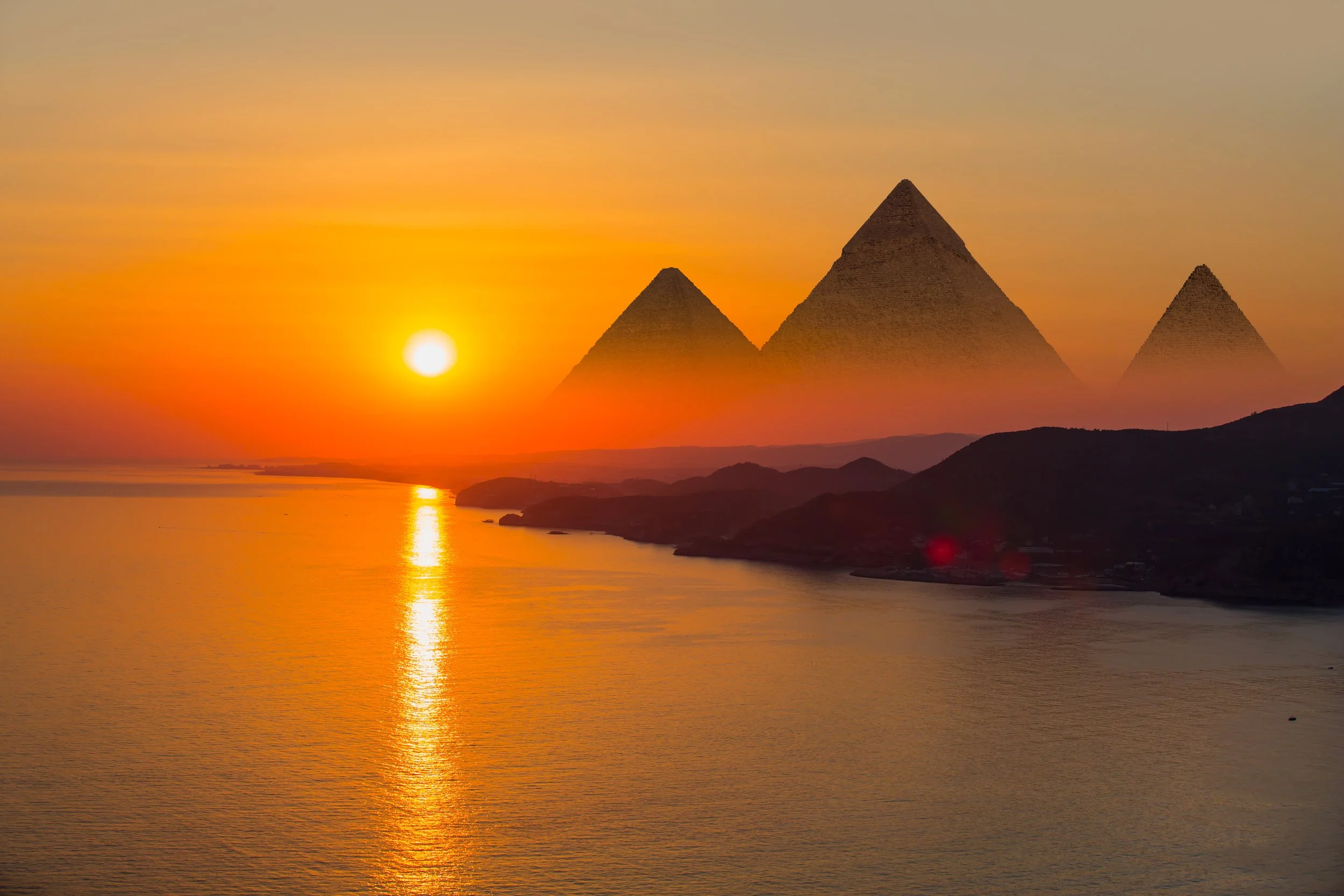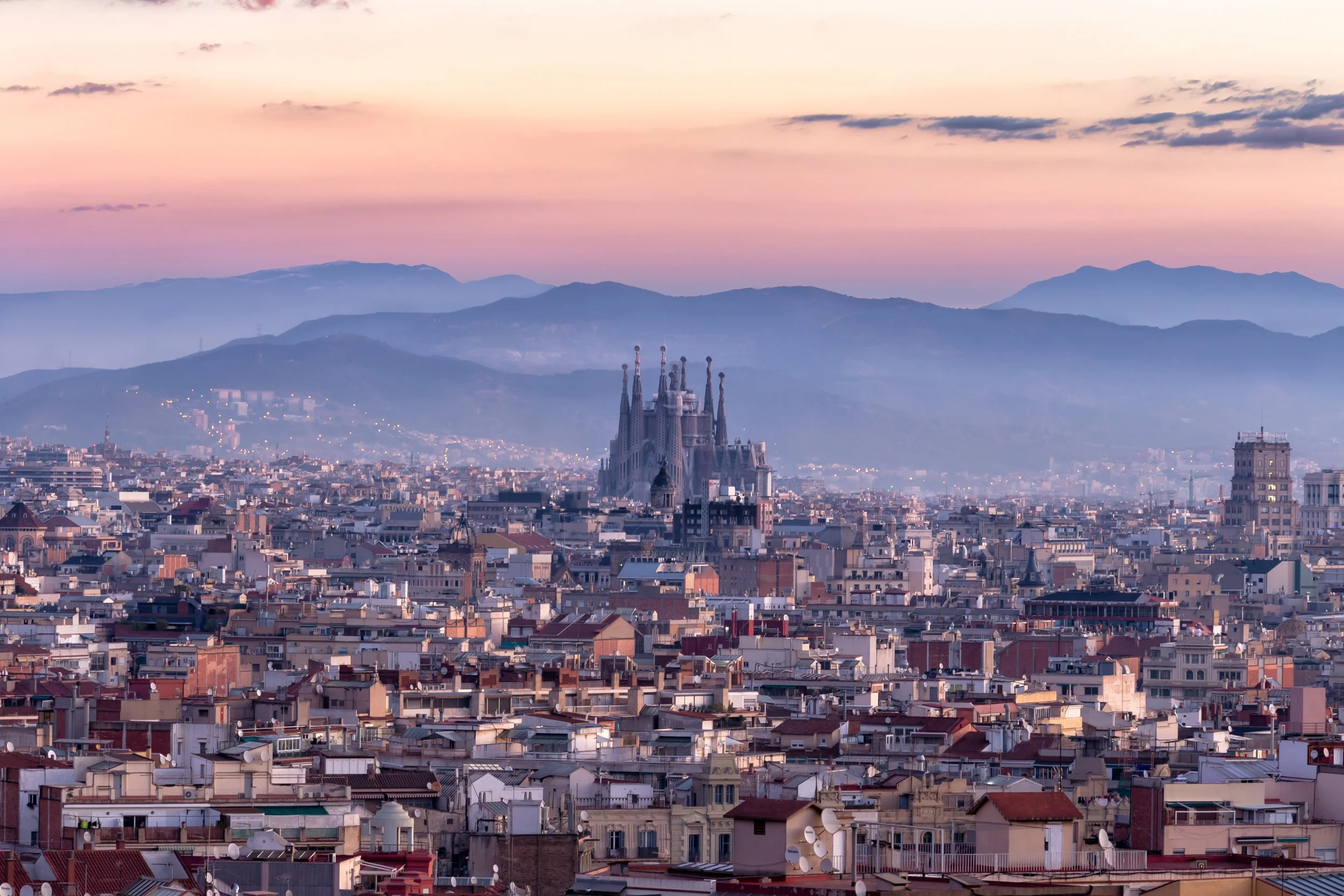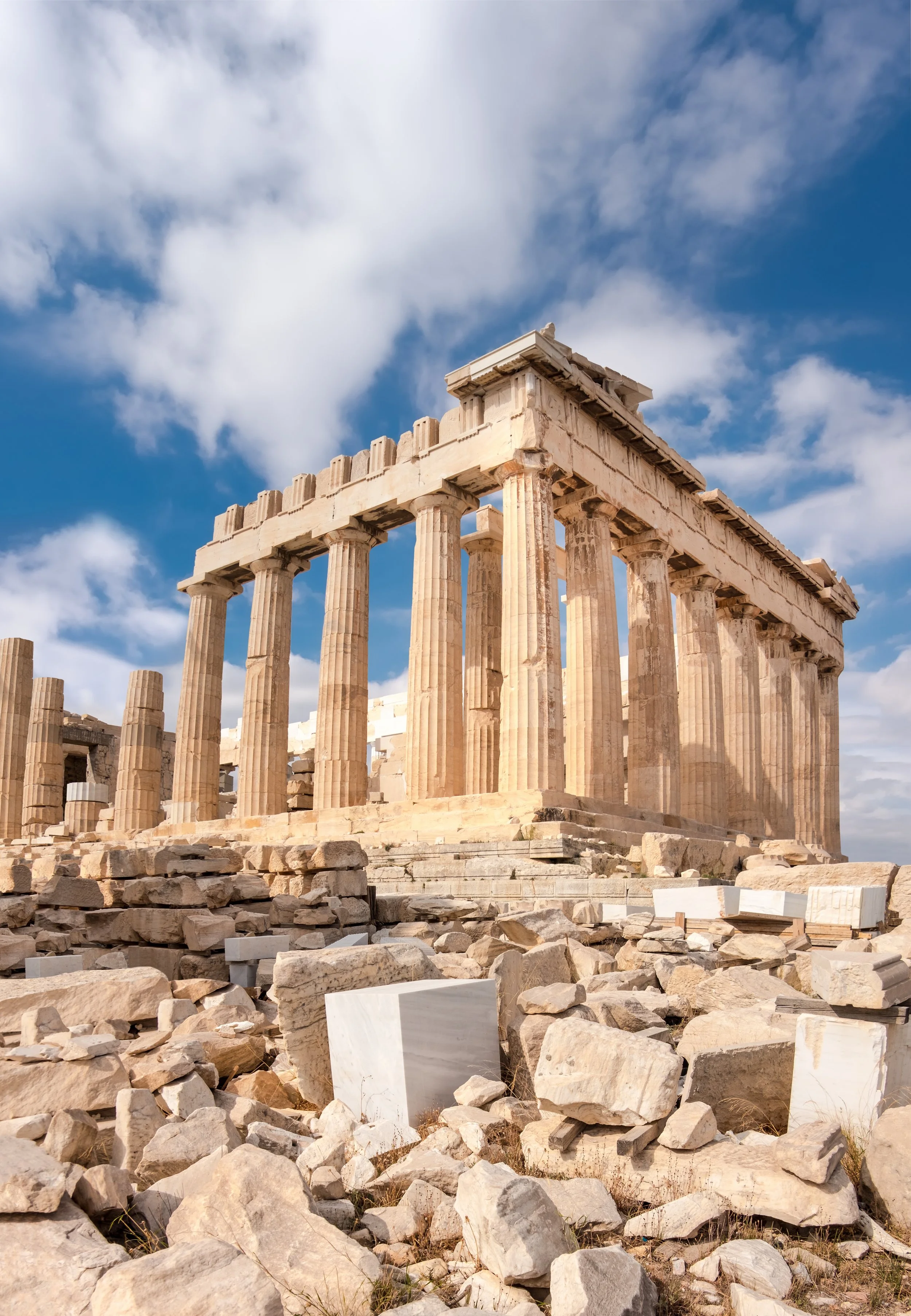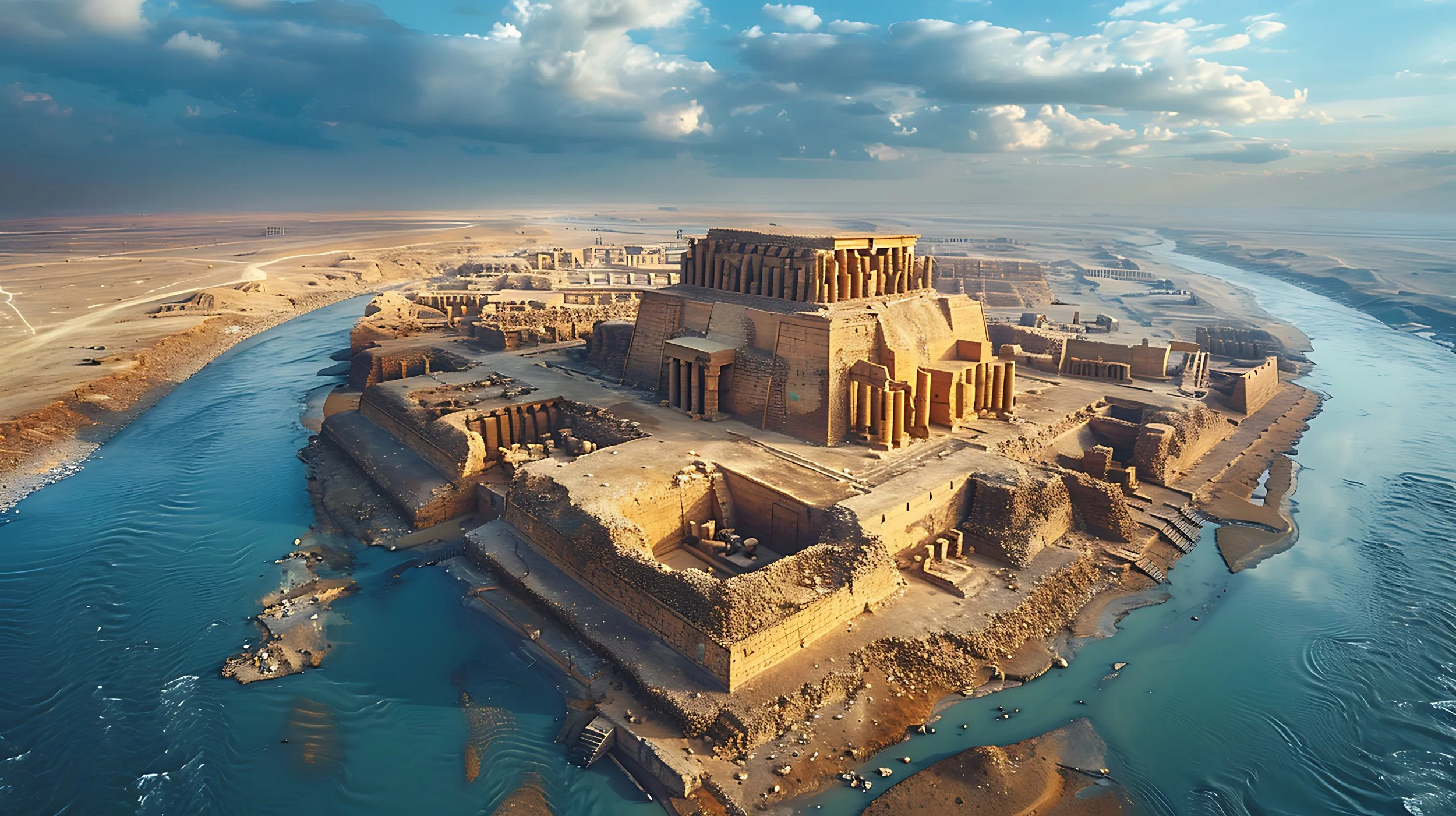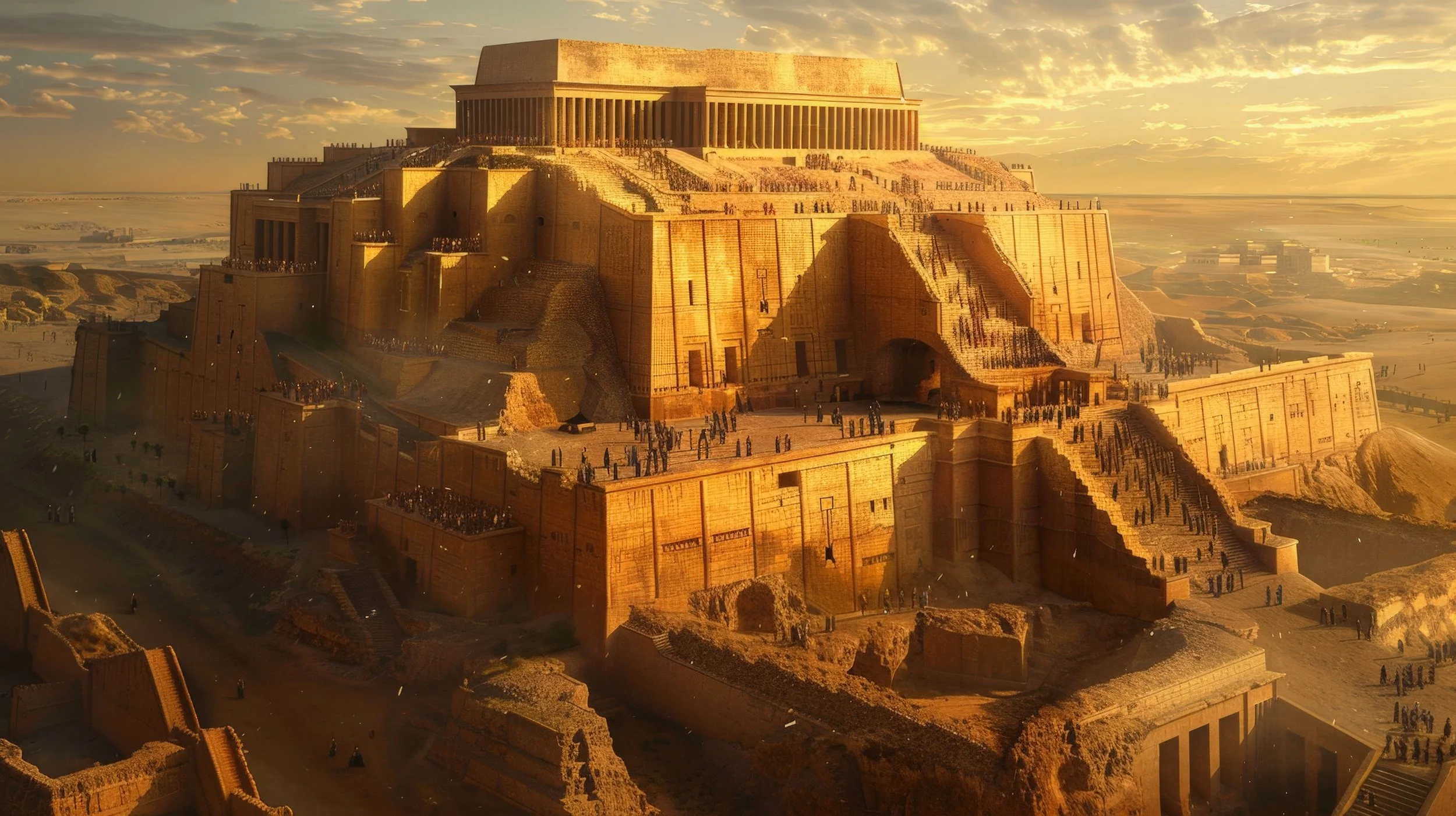Principal Architect, Mitchell Rocheleau meets Islam Issa, an award-winning Egyptian-British author, broadcaster, and the new Professor of Public Humanities at Birmingham City University, to discuss the Ancient City of Alexandria. Learn about the thoughtful planning that went into the city, the Lighthouse, and Library of Alexandria as well as what values were prioritized in its creation by Alexander the Great. What can we learn about an ancient city to create thoughtful cities for today's world?
Read MoreExplore the fascinating origins of Egypt’s ancient civilization with Mitchell Rocheleau of ROST Architects, from the early settlers near the Nile to the awe-inspiring construction of the Great Pyramid. This video explores the pivotal role the Nile River played in shaping Egypt’s agriculture, culture, and monumental architecture. Discover the innovations behind the Pyramids, the role of the Giza Plateau, the workers’ village, and the mystery surrounding Khufu’s reign. Uncover recent discoveries and speculations that challenge our understanding of Egypt's greatest architectural marvel.
Read MoreJoin Principal Architect, Mitchell Rocheleau in this interview with Dr. Moudhy Al-Rashid, author of "Between Two Rivers: Ancient Mesopotamia and The Birth of History", Historian and honorary fellow at Wolfson College, University of Oxford. We discuss the importance of the creation of cities, early beginnings of Mesopotamia as a place and the incredible technologies from irrigation and writing systems that were essential to the environment. Watch to understand why studying ancient Mesopotamia is vital for our understanding of our present societies and how evolution of these creations has affected our current life and the ways in which we access basic needs.
Read MoreArchitect Mitchell Rocheleau discusses the importance behind Architecture History. Architecture can provide glimpses into human history, allowing us to understand the evolution and development of the human species. Learn the stories Architecture History tells us, from prehistoric structures to contemporary architecture, we can see what was important to humans at the time.
Read MoreAlexandria is often overlooked when in comparison with ancient Athens or Rome. However, this city does deserve some further investigation due to its interesting philosophies, ideas, and concepts that it was conceived upon, primarily those of Alexander the Great, and how he conceived the city, how he founded it, and how he began to lay out the preliminary planning of the city.
Read MoreRecent restoration and analysis of the Parthenon, in tandem with other discoveries, have uncovered a wealth of new information regarding this iconic architectural masterpiece. Much of this information challenges and presents new perspectives about the conventional understanding of the structure.
Read MorePrincipal and Architect of ROST Architects, Mitchell Rocheleau, meets with Mike Parker Pearson. Mike is an English archeologist specializing in the study of Neolithic Britain, most notably Stonehenge. He was the director at the Stonehenge Riverside Project and the author of several books, including Stonehenge - A New Understanding.
Read MoreArchitect Mitchell Rocheleau travels to the Roman Baths in Bath, England, to uncover the stories about the people who engineered, built, and used this stunning Roman bathing complex. High-quality on-site footage and detailed expert interviews reveal captivating insights into this ancient site. This in-depth documentary will give viewers a genuine appreciation and understanding of this architectural marvel.
Read MoreShrouded in mystery, the pyramids are a captivating enigma calling us to unravel their secrets. Built over 4,500 years ago, they are one of the best-known manifestations of a civilization's belief systems in the built environment. The Egyptians had a distinct perspective on human existence and the afterlife that was reflected in their architecture.
Read MorePrincipal and Architect of ROST Architects, Mitchell Rocheleau, meets with Peter Davenport, professional archeologist for 46 years including 25 years as a senior archeologist at Bath Archeological Trust. Peter's been involved in all of the excavations carried out in the Roman Baths and a large majority of excavations in the City of Bath. Peter is also trustee on the Roman Baths Foundation and the author of "Roman Bath: A New History and Archeology of Aquae Sulis."
Read MoreInvestigating why our ancestors began building architecture and congregating in cities can reveal fundamental insights about human nature. There is no better place to start than with the development of the first cities in ancient Mesopotamia. The city has always been where people congregate, and ideas, innovation, and progress flourish. People come to the city to reinvent and express themselves and test and share their ideas, wherein, simultaneously, culture evolves and civilization progresses. Since their conception, cities have always been nuclei of human advancement.
Read MoreWhat makes Stonehenge so captivating? This enigmatic Neolithic monument offers a window into our past and the lives of our ancestors. Stonehenge provides insights into their values, societal norms, and psychology. It unveils their astonishing level of sophistication, intricate communication networks, complex collaboration methods, and a deeply intuitive community with a profound understanding of materials, construction techniques, ecology, and astronomy. This megalithic marvel has the potential to enlighten us about our own journey and the evolution of our species.
Read MoreI want to take you on a journey back in time in the southwest of present-day Britain, near a bend in the river Avon. Here, a natural geological process dispelled warm, mineral-rich water from deep within the earth.
The ancient people who inhabited this area believed these healing and mystical waters were a gift from the gods and were presided over by an ancient goddess named Sulis.
Read MoreIn many modern cities, there seems to be a lack of institutions and structures offering life guidance, emotional development, mental health, spirituality, and helping people find answers to life’s more significant questions.
Read MoreMitchell Rocheleau, meets with Roderick Beaton to discuss Ancient Greek Culture & Cities, and the impact it has on modern day city design.
Read MoreRome's history is often presented as a glittering metropolis full of architectural excellence, sophisticated engineering, extensive paved roads, and glorious monuments. Our contemporary entertainment industry romanticizes the tales of Roman emperors, warriors, gladiators, and politicians. When we visit the ruins, we imagine the daily life of ancient Rome as a pageant of prosperity and industriousness that supported the growth of an ancient utopia. These aspects and portrayals of Rome have a degree of truth behind them. However, a darker side of Rome managed to evade the limelight.
Read MoreMany factors shaped ancient Greek cities. The natural landscape, climate, religious beliefs, philosophy, literature, politics, law, sport, art, theater, and psychology amalgamated to create genuinely unique cities and a thriving culture. Many aspects of Greek civilizations still form the basis of modern Western culture and society; however, we have also made significant diversions, which I believe deserve close assessment. Can certain aspects and values of ancient Greek cities and culture be re-integrated into our contemporary societies to help improve our current condition?
Read MoreHow did cities develop? Many of us take our environments for granted without questioning how and why they evolved into the forms we see today. In his book The City in History, Lewis Mumford provides a fascinating account of the history of cities. His interpretation dissects the complex forces that led to their creation. He discusses what forms these forces manifest themselves in throughout human development.
Read More